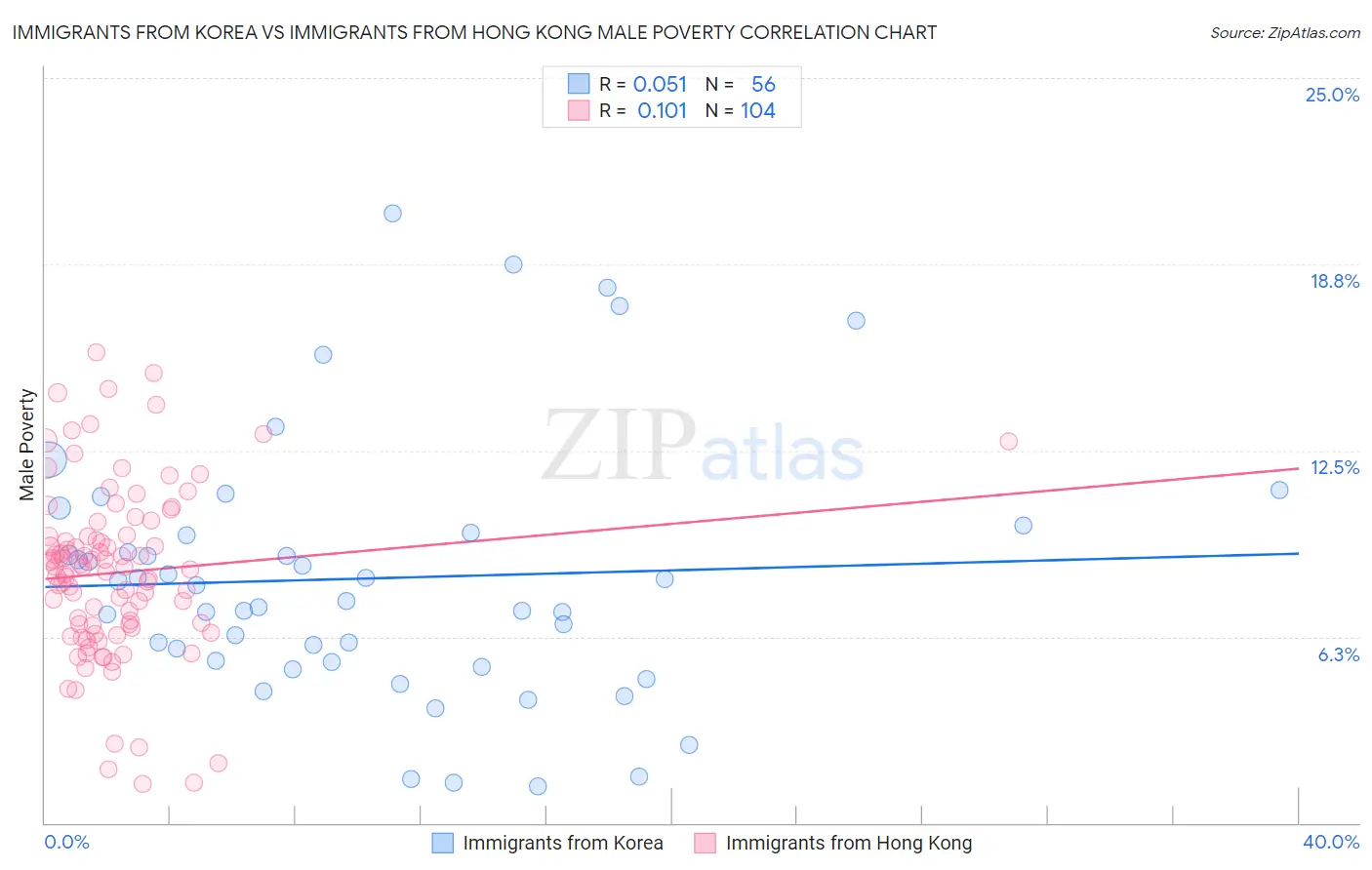Immigrants from Korea vs Immigrants from Hong Kong Male Poverty
COMPARE
Immigrants from Korea
Immigrants from Hong Kong
Male Poverty
Male Poverty Comparison
Immigrants from Korea
Immigrants from Hong Kong
9.7%
MALE POVERTY
99.6/ 100
METRIC RATING
28th/ 347
METRIC RANK
9.6%
MALE POVERTY
99.7/ 100
METRIC RATING
19th/ 347
METRIC RANK
Immigrants from Korea vs Immigrants from Hong Kong Male Poverty Correlation Chart
The statistical analysis conducted on geographies consisting of 415,786,791 people shows a slight positive correlation between the proportion of Immigrants from Korea and poverty level among males in the United States with a correlation coefficient (R) of 0.051 and weighted average of 9.7%. Similarly, the statistical analysis conducted on geographies consisting of 253,850,467 people shows a poor positive correlation between the proportion of Immigrants from Hong Kong and poverty level among males in the United States with a correlation coefficient (R) of 0.101 and weighted average of 9.6%, a difference of 1.5%.

Male Poverty Correlation Summary
| Measurement | Immigrants from Korea | Immigrants from Hong Kong |
| Minimum | 1.2% | 1.3% |
| Maximum | 20.5% | 15.8% |
| Range | 19.2% | 14.5% |
| Mean | 8.2% | 8.4% |
| Median | 7.7% | 8.6% |
| Interquartile 25% (IQ1) | 5.4% | 6.6% |
| Interquartile 75% (IQ3) | 9.7% | 9.6% |
| Interquartile Range (IQR) | 4.3% | 3.0% |
| Standard Deviation (Sample) | 4.3% | 2.9% |
| Standard Deviation (Population) | 4.3% | 2.9% |
Demographics Similar to Immigrants from Korea and Immigrants from Hong Kong by Male Poverty
In terms of male poverty, the demographic groups most similar to Immigrants from Korea are Greek (9.7%, a difference of 0.040%), Danish (9.7%, a difference of 0.080%), Polish (9.7%, a difference of 0.12%), Tongan (9.7%, a difference of 0.14%), and Burmese (9.7%, a difference of 0.21%). Similarly, the demographic groups most similar to Immigrants from Hong Kong are Latvian (9.6%, a difference of 0.10%), Lithuanian (9.5%, a difference of 0.18%), Norwegian (9.5%, a difference of 0.35%), Immigrants from Scotland (9.6%, a difference of 0.36%), and Luxembourger (9.5%, a difference of 0.48%).
| Demographics | Rating | Rank | Male Poverty |
| Immigrants | Lithuania | 99.9 /100 | #13 | Exceptional 9.4% |
| Immigrants | North Macedonia | 99.8 /100 | #14 | Exceptional 9.4% |
| Bhutanese | 99.8 /100 | #15 | Exceptional 9.5% |
| Luxembourgers | 99.8 /100 | #16 | Exceptional 9.5% |
| Norwegians | 99.8 /100 | #17 | Exceptional 9.5% |
| Lithuanians | 99.8 /100 | #18 | Exceptional 9.5% |
| Immigrants | Hong Kong | 99.7 /100 | #19 | Exceptional 9.6% |
| Latvians | 99.7 /100 | #20 | Exceptional 9.6% |
| Immigrants | Scotland | 99.7 /100 | #21 | Exceptional 9.6% |
| Croatians | 99.7 /100 | #22 | Exceptional 9.6% |
| Italians | 99.7 /100 | #23 | Exceptional 9.6% |
| Swedes | 99.7 /100 | #24 | Exceptional 9.6% |
| Eastern Europeans | 99.6 /100 | #25 | Exceptional 9.6% |
| Burmese | 99.6 /100 | #26 | Exceptional 9.7% |
| Danes | 99.6 /100 | #27 | Exceptional 9.7% |
| Immigrants | Korea | 99.6 /100 | #28 | Exceptional 9.7% |
| Greeks | 99.6 /100 | #29 | Exceptional 9.7% |
| Poles | 99.5 /100 | #30 | Exceptional 9.7% |
| Tongans | 99.5 /100 | #31 | Exceptional 9.7% |
| Macedonians | 99.5 /100 | #32 | Exceptional 9.7% |
| Immigrants | Northern Europe | 99.5 /100 | #33 | Exceptional 9.7% |